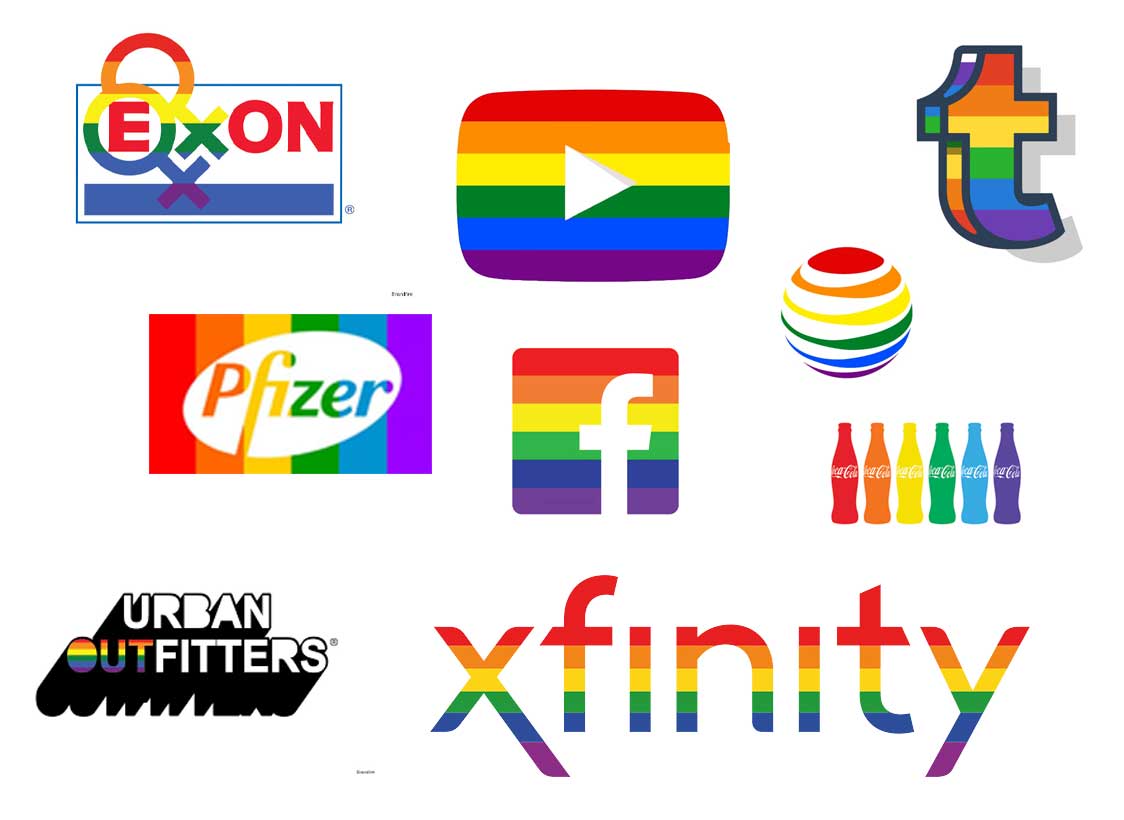
COMMENTARY: Wokenomics, the good, the bad and the gray area
As time goes on, companies and brands are increasingly beginning to show support of social issues such as LGBTQ+ rights, climate change, and environmental subjects. But very often this support seems more like a ploy for more money than sincere support of issues, embracing an ever-growing trend that has come to be known as “wokenomics,” in which companies utilize current social issues as a way to benefit their company.
Wokenomics originates from the term “woke,” which is used to describe someone who is aware or active in social issues. Wokenomics can be seen through advertisements depicting a particular social issue, or the company choosing to claim they now support or back an issue.
For example, when a certain social issue-themed month arrives, like Pride Month in June, many companies who have been uninvolved in social justice and issues suddenly change their logo to be rainbow-themed.
Stores might start selling rainbow-colored clothing during Pride month or companies may announce a move toward more environmentally friendly products on Earth Day.
Some might describe incidents like these as companies jumping on the bandwagon for certain issues in order to make themselves more popular. This trend is what is now starting to be known as wokenomics.
While wokenomics itself is not necessarily a bad thing, companies have to be more mindful about how they approach it.

Sometimes a company or brand’s actions are not as helpful as they imagine and it becomes clear their intentions are simply to gain a profit.
This clearly less-than-ethical marketing strategy comes at a time where supporting certain issues can truly make or break a customer’s decision.
One study conducted by AdWeek showed that 73% of Millenials and 72% of Generation Z are willing to pay extra for products that align with their belief system. With this in mind, marketing seems to be in the golden age of using social issues as a way for companies to gain more money for themselves.
While there have been some sincere actions by companies supporting social justice, wokenomics has mostly been represented more so by opportunistic bandwagoning, which in many ways has shown to make a mockery of the issue being addressed.
One example of wokenomics would be the 2017 Pepsi commercial starring Kendall Jenner, which trivialized police brutality protests. Pepsi had not given much commentary on police brutality, so portraying the issue in such a trivial manner in the commercial gave the impression the company was trying to use the issue as a way to market its products.
Wokenomics often brings to light the gray moral areas of companies such as Nike which had more credibility in its partnership with Colin Kaepernick as its partnership aligned with their history. Nike’s CEO Mark Parker has previously expressed support of Black Lives Matter and spoke out against racism.
However, the company has faced controversy for its ongoing child labor scandals. This kind of inconsistency in their practices brings clear skepticism about companies’ attempts at social justice from consumers.
The overall phenomenon of wokenomics raises an important issue for both companies and consumers.
If major companies wish to truly become part of social justice issues and be sincere in their choice, they should use their profits to support the cause they are choosing to back up, not just their own self-serving marketing campaign.
Chipotle, for example, hosted a “Dine with Pride” event June 20, in which customers could choose to donate to local LGBTQ+ organizations. Starbucks has recently partnered with Lady Gaga for its “Born This Way” campaign in which one can donate to support LGBTQ+ rights.
Companies should do their best to embody what they claim to promote. Selling rainbow colored apparel and other products during Pride Month is not enough. Companies wishing to be sincere should support social issues year-round and be representative of that support through their marketing, general operations and hiring practices.
Additionally, if one wants to support social issues, one should donate to charitable causes relevant to the issue and purchase from companies who support those social issues.
